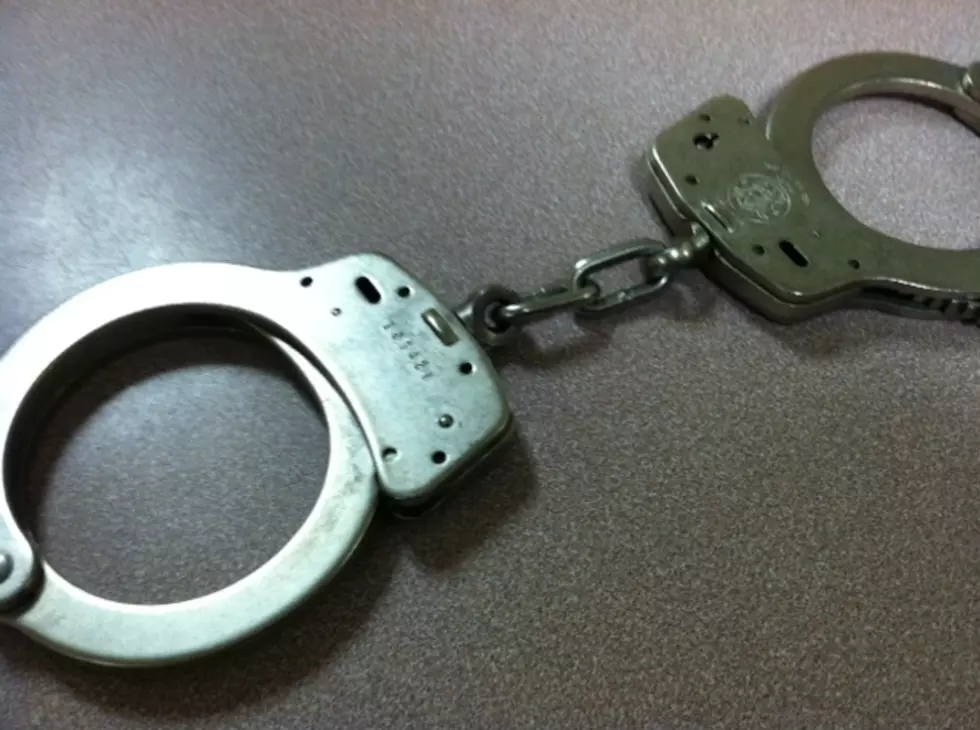
Kids Who Assault On US Bases Can Still Escape Accountability
Despite new rules addressing sexual assault among the children of U.S. service members, the federal government failed to fix a flaw that on many military bases has let alleged juvenile abusers escape accountability or treatment.
New records obtained by The Associated Press underscore how few child-on-child sex assault reports pursued by military investigators are prosecuted. That problem is most serious on U.S. installations overseas, where at least 47,000 children are enrolled in Pentagon-run schools.
Children and teens suspected of sex crimes on U.S. bases overseas often faced no legal consequences, such as court-ordered rehabilitation, records obtained through the Freedom of Information Act show. Those held to account were generally either kicked off base into the civilian world or received modest punishments, the records show.
One, for example, was told to write a 1,000-word essay about "the difference between appropriate and inappropriate touching." Another avoided punishment by enlisting in the Army. A third, who was put on curfew after two girls accused him of sexual assault, was investigated a year later in an alleged rape, a case that also went unprosecuted.
Congress ordered internal investigations and mandated Pentagon reforms this summer after an Associated Press investigation revealed the problems of juvenile sexual assault on U.S. military bases, including the failure of the Defense and Justice Departments to help either victims or offenders.
One proposed reform would have required federal prosecutors with jurisdiction over civilians on base to transfer child-on-child sex assault cases to counterparts in state juvenile justice systems, which have resources dedicated to rehabilitation. But that requirement did not survive final negotiations over the legislation.
Federal prosecutors, under pressure to win big convictions, don't take juvenile sex assault cases because they can be hard to prove and require extra paperwork, former prosecutors say. Military officials privately bemoan what they see as the Justice Department's indifference while publicly noting their own limitations.
"We could bar that kid from being on post, or we could move the family from the post, but beyond that, the authorities really reside outside the military," Army Secretary Mark Esper told senators at a May hearing.
Representatives of the Defense and Justice Departments have been meeting for several months to resolve problems that AP's investigation highlighted.
Officials are "considering a range of options to ensure that these types of cases are effectively addressed," Justice Department spokesman Wyn Hornbuckle told the AP. The idea is to use state courts when possible, he added.
That would not apply to U.S. installations in Europe and Asia, where U.S. officials can be reluctant to involve prosecutors from host nations.
AP's review of investigative reports in which military officials documented prosecution decisions found that about one in 10 on overseas Army, Navy or Marines bases were accepted from 2007 into 2017.
Weak cases don't explain the lack of prosecutions. Army criminal investigators concluded that nearly 90 percent of juvenile sex crime allegations on bases were credible, records show. Naval Criminal Investigative Service agents do not routinely record whether they believe allegations, but on the Navy and Marines bases where NCIS works, AP identified two dozen unprosecuted cases in which an alleged attacker confessed.
The Justice Department refused to share data on the prosecution of juveniles for sex crimes committed overseas. The department added that its lawyers decline to prosecute cases for many reasons, including strength of evidence, age of the suspect and severity of the alleged crime.
Congress acted in response to AP stories that identified nearly 700 cases of child-on-child sexual assault or rape on American military installations worldwide over a decade. Military investigators buried some cases, AP found, while many of those they investigated fell into the legal and bureaucratic netherworld.
Military lawyers cannot prosecute the civilian children of service members and contractors. Given the infrequency of federal prosecution, kids suspected of sexually assaulting other kids rarely get the kind of court-supported rehabilitation that research shows will prevent most young offenders from committing another sex crime.
Lawmakers directed the Pentagon's inspector general and the Government Accountability Office to investigate. They also ordered the Department of Defense Education Activity, which oversees the Pentagon's network of schools in seven U.S. states and 11 other countries, to create new policies to track and respond to reports of child-on-child sexual assault. Legal protections that students in U.S. public schools enjoy were extended to the military-run schools as well.
The AP's investigation also found that the military's Family Advocacy Program has deniedservices to sex-assault victims because their alleged attacker was not an adult. Spokeswoman Lt. Col. Carla Gleason said Pentagon experts are now "working on identifying gaps in our family advocacy processes and programs concerning problematic juvenile sexual behavior." Congress appropriated $10 million for family advocacy services over the next year.
In contrast, efforts to pressure the Justice Department to change the way it handles juvenile sex assault prosecutions have floundered.
When Sen. Kirsten Gillibrand, D-N.Y., asked the Justice Department's inspector general to review why federal prosecutors rarely take such cases, Inspector General Michael Horowitz responded that any action would be premature, pending the outcome of the ongoing discussions between the Justice and Defense Departments.
Sen. John Cornyn of Texas, the chamber's No. 2 Republican, had proposed requiring federal authorities to share legal jurisdiction over juvenile crimes with states. That proposal was watered down in negotiations with the House of Representatives, and the final bill that President Donald Trump signed in August contained language merely urging that such authority be shared.
Cornyn said in a statement he would "keep fighting to allow local prosecutors to pursue these cases so our most vulnerable and their families can get the justice they deserve." Spokeswoman Ryann DuRant said the senator will introduce similar legislation in 2019.
One of the rare cases in which federal prosecutors filed sexual assault charges against military kids involved a 10-year-old who was accused of abusing five younger boys at Fort Huachuca in Arizona.
The abuser was first reported in August 2010. Records show investigators didn't pursue a criminal case until a second report four months later. The boy was sentenced to probation and ordered to get treatment.
"He needed to go somewhere to be rehabilitated," Assistant U.S. Attorney Ann DeMarais said during a court hearing this summer, after the boy landed in custody for a probation violation. "We know he can succeed and do really well in a controlled environment."
___
Pritchard reported from Los Angeles, Dunklin from Dallas.
___
Reach the reporters on Twitter at https://twitter.com/lalanewsman and https://twitter.com/ReeseDunklin .
More From WIBX 950









